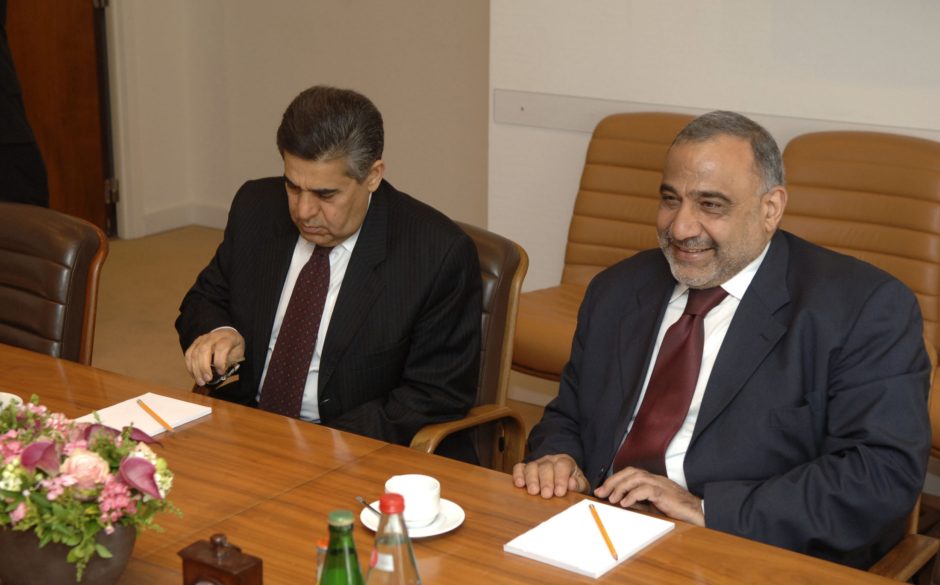President Donald Trump has repeatedly said he wants to withdraw American forces from the “endless wars” in the Middle East, yet he resists calls by Iraqi nationalists demanding a pullout of U.S. troops from Iraq.
Trump’s position is not exactly contradictory. Although he has drastically reduced the size of the U.S. force in Syria, he appears to have no problem sending yet more troops to other Arab countries. Some 50,000 American servicemen and women are already in the region, in nations ranging from Saudi Arabia and Turkey to Bahrain and the United Arab Emirates.
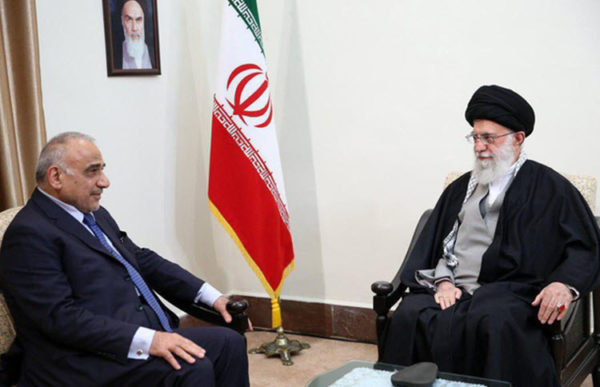
In keeping with this mindset, Trump was upset when Iraq’s parliament earlier this month passed a non-binding resolution to expel the 5,200-strong U.S. expeditionary force in Iraq. Iraqi Prime Minister Adel Abdul Mahdi publicly endorsed the motion, which was backed by Shi’a but not by Sunni or Kurdish parliamentarians. Mahdi also asked U.S. Secretary of State Mike Pompeo send a delegation to Baghdad to negotiate a withdrawal.
The motion was passed shortly after General Qassem Soleimani, the commander of Iran’s Quds Force, the long arm of the Islamic Revolutionary Guards Corps, was assassinated by a U.S. drone strike at Baghdad International Airport on January 3. Ten people were killed in the attack, including Abu Mahdi al-Muhandis, the commander of the Popular Mobilization Forces, a pro-Iranian and pro-Hezbollah Shi’a militia whose bases have been bombed by Israel in air raids in recent months.
Mahdi condemned Soleimani’s assassination as a violation of Iraqi sovereignty, but said that Iraq seeks to maintain “the best of relations with its neighbors and friends in the international community,” a veiled reference to Iran and the United States.
In the face of Iraq’s demand for a U.S. withdrawal, Washington pushed back hard.
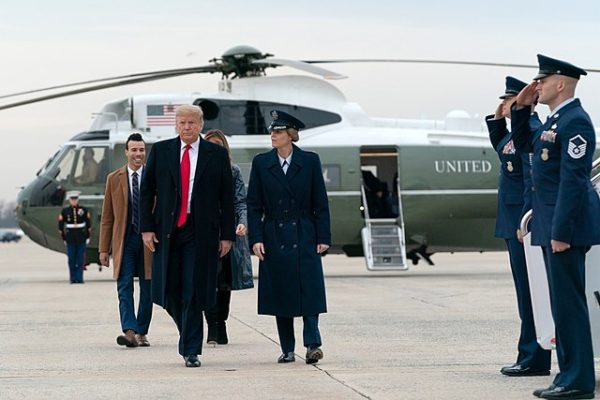
Trump threatened to impose “very big” sanctions on Iraq if U.S. troops are expelled. Trump administration officials warned that Iraq could be cut off from a $35 billion U.S.-based account that holds its oil revenues, and that a U.S. waiver allowing Iraq to import natural gas from neighboring Iran could be cancelled.
And in a stunning rebuke to Iraq, Pompeo said that the U.S. mission in Iraq, concentrated on the training of Iraqi forces to fight the Islamic State organization, would continue as before.
Noting that the U.S. military in Iraq is focused on combatting Islamic State, a State Department official said that talks between the United States and Iraq should be aimed at “discussing how to best recommit to our strategic partnership — not to discuss a troop withdrawal. ”
The United States invaded Iraq in 1991 during its campaign to liberate Kuwait from the shackles of the Iraqi occupation and again in 2003 to destroy Iraq’s alleged stockpile of non-conventional weapons of mass destruction. In 2011, President Barack Obama pulled nearly all U.S. troops out of Iraq, satisfied he had crushed an armed rebellion by Al Qaeda.
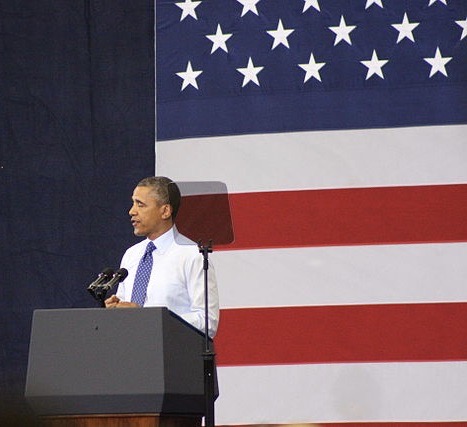
U.S. forces in much smaller numbers returned in 2014 at the invitation of the Iraqi government to confront Islamic State, which had seized vast areas of northern and western Iraq. By 2017, Iraq had virtually defeated Islamic State in conjunction with Iran, Iranian-trained Shi’a militias and the United States. Since then, Islamic State, though no longer controlling Iraqi cities like Mosul and Tikrit, has morphed into a guerrilla force capable of launching deadly attacks.
Several months before Soleimani was killed, nation-wide protests erupted in Iraq calling for the end of foreign influence, of corruption in government and improvements in public services. Iraqi police often used lethal force to break up demonstrations, resulting in the deaths of more than 500 civilians. During this period of unrest, Iran’s consulate in Najaf was stormed by Iraqis opposed to Iranian meddling and influence in Iraq.
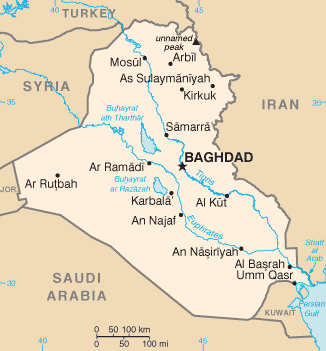
Iran, the predominant Shi’a power in the Middle East, wields enormous clout in Iraq, a nation whose population is composed mainly of Shi’a Muslims. Before the overthrow of Saddam Hussein’s Baathist regime in 2003, Iraq was ruled by a cabal of minority Sunni Muslims, and Iraq’s bilateral relations with Iran were poor. Iraq invaded Iran in 1980, triggering an eight-year war.
Although the United States earned the gratitude of many Iraqis by ridding Iraq of the brutal Saddam Hussein dictatorship, the majority have grown weary of the American military footprint. Anti-American feeling has been stoked by neighboring Iran, which seeks to build a “resistance front” in Iraq, persuade Iraqis that the United States poses a threat to Iraq’s sovereignty and security, and induce the withdrawal of American forces.
Late last month, a pro-Iranian Shi’a militia fired rockets at a U.S. base in Kirkuk, killing an American military contractor. In response, U.S. aircraft bombed five Shi’a camps in Iraq and Syria, killing 25 members of the Kataib Hezbollah militia, which the Trump administration blamed for the death of the American.
Outraged by the high casualty toll, pro-Iranian Iraqis marched on the U.S. embassy in Baghdad on January 1, damaging property as Iraqi police watched in silence.
Convinced that the Al Quds Force planned to attack U.S. embassies in the region, Trump ordered Soleimani’s assassination. Several days later, in a retaliatory bombardment, Iran fired 22 missiles at two U.S. bases in Iraq, heightening fears that the United States and Iran would be dragged into a war.
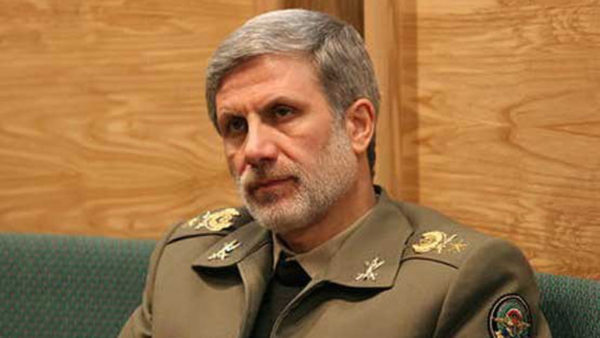
“We do not seek escalation or war,” Iranian Foreign Minister Mohammad Javad Zarif tweeted in a bid to defuse tensions. Iranian Defence Minister Amir Hatami, however, adopted a truculent tone, describing Iran’s reprisal as “just a slap.”
Trump, striking an upbeat note, tweeted, “All is well,” claiming the United States had sustained no casualties. In fact, 64 U.S. soldiers have suffered concussions, some having been flown to Germany and the United States for treatment.
Shortly after Iran’s attack, the Islamic Revolutionary Guards Corps accidentally shot down a Ukraine International Airlines commercial airliner which had just taken off from Tehran’s airport. One hundred and seventy six passengers, including 57 Canadian citizens, were killed. At first, Iran denied its involvement in the downing of the plane, but eventually it acknowledged its responsibility.
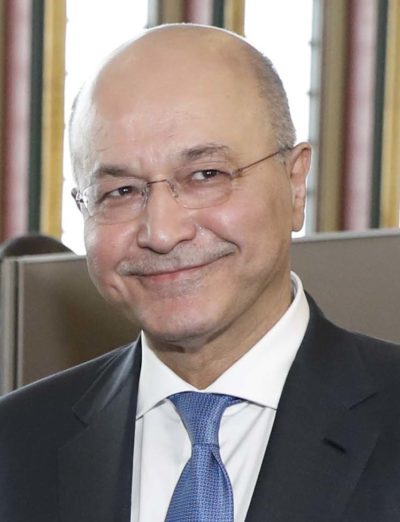
On January 30, the United States resumed joint military cooperation with Iraq after a fairly lengthy pause. Trump, meanwhile, conferred with Iraqi President Barham Saleh at the World Economic Forum in Davos, Switzerland. Trump told reporters that the United States and Iraq had a “host of very difficult things to discuss.” Saleh said the two countries share common interests, namely the battle against Islamic State.
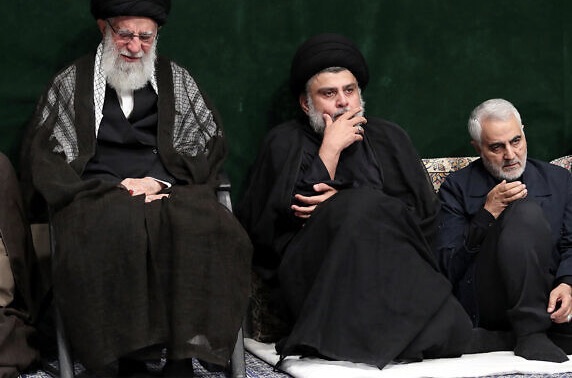
Despite the conciliatory note struck by Saleh, upwards of 250,000 Iraqis took to the streets in Baghdad on January 24 to protest the U.S. military presence in Iraq. One of the organizers of the march was the anti-American Shi’a cleric, Moqtada al-Sadr, an Iraqi nationalist with close ties to Iran.
Three days after this massive demonstration, the U.S. embassy in Baghdad was hit by four 120-millimeter mortar shells, causing minor damage and slightly injuring one person. Pompeo expressed outrage that pro-Iranian groups are continuing to target U.S. facilities in Iraq. The Iraqi prime minister condemned the attack as a violation of Iraq’s sovereignty and “the sanctity of diplomatic missions on its soil.”
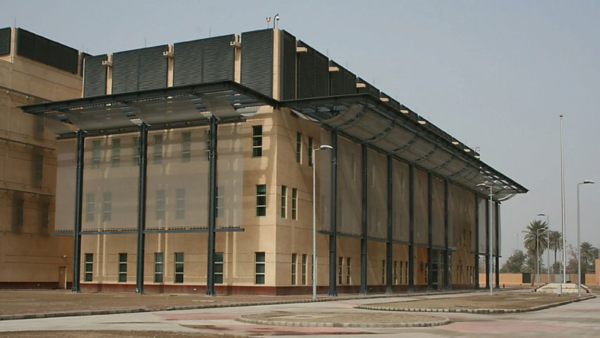
By some accounts, Mahdi does not really want U.S. forces to leave Iraq, knowing full well they’re required as military trainers and to keep Islamic State at bay. But pressure is building in Iraq’s Shi’a community to eject them. Mahdi may thus have no choice but to follow through with his request for a U.S. pullout.
Iran would be very pleased with such an outcome.
